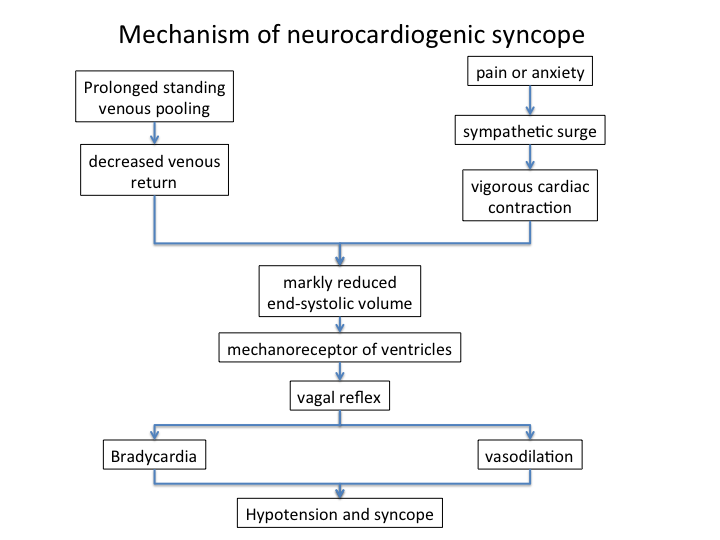23M medical student
Main Theme
What do we ask in the interview?
Consciousness requires the following…
- Organized cortical electrical activity
- Glucose
- Oxygen
- A functional delivery system to deliver oxygen and glucose
Differential Diagnosis
A. BP
1. Inadequate EDV
Dehydration, Hemorrhage,
PE, cardiac tamponade
2. Elevated ESV
AS, Hypertrophic cardiomyopathy
3. Heart rate disorders
a. Tachycardias
ventricular tachycardia, WPW
b. Bradycardia
(1) Neurally mediated syncope
Neurocardiogenic syncope
Situational syncope
Carotid sinus syndrome
(2) Sinus node disorders
Sinus bradycardia, Sinus pause
(3) AV block
4. Decreased TPR
Neurocardiogenic syncope, Drugs,
Hypersensitive carotid, Sepsis,
Addison disease
B. Disorganized electrical activity
Generalized seizures
C. Hypoglyceria
Iatrogenic, Insulinoma
D. Hypoxemia
E. Obstructed vascular conduits
Vertebrobasilar insufficiency,
Subclavian steal
Interview
He felt perfectly well before entereing the anatomy room.
He was not confused.
He was unconscious for only a few seconds.
He felt queasy and warm before he became unconscious.
No diarrhea or vomiting
Not having heart diseases
Not taking any medicine
No family history of sudden cardiac death
Not smoking and drinking
Physical Examination
BP and pulse are normal and do not change with standing.
Cardiac rhythm is regular without a significant murmur
ECG is normal
Respiratory rate is normal
Diagnosis
Neurocardiogenic syncope
Most common cause of syncope(20-33%)
young people
prolonged standing, pain, anxiety
Warning signs: Lightheadedness,nausea, and diaphoresis
Tilt-test is particularly useful

Treatment
instruction to avoid triggers
lying down if they noteice the premonitory sign
elimination of vasodilator and diuretics
isometric arm and leg contraction
midodrine(α-agonist)
orthostatic training(soccer club)
MUST NOT MISS
Hypertrophic cardiomyopathy
The most common of cardiovascular death among young athletes.
1/500 adults
clinical clues : history of exertional syncope, family history of sudden death, systolic murmur
important test : ECG, echocardiogram
Seizure
clinical clues : prolonged period of lethargy, confusion, or amnesia
following syncope. tonic-clonic activity, incontinence
important test : EEG, neuroimaging
バックナンバー
20110531全身倦怠感
20110608鼻血
20110615呼吸困難
20110622体重減少
20110628頭痛
20110706腹痛
20110713悪心・嘔吐
20110721疲労感
20110722貧血
20110725女性の腹痛
2011年上半期まとめ
20110909骨痛